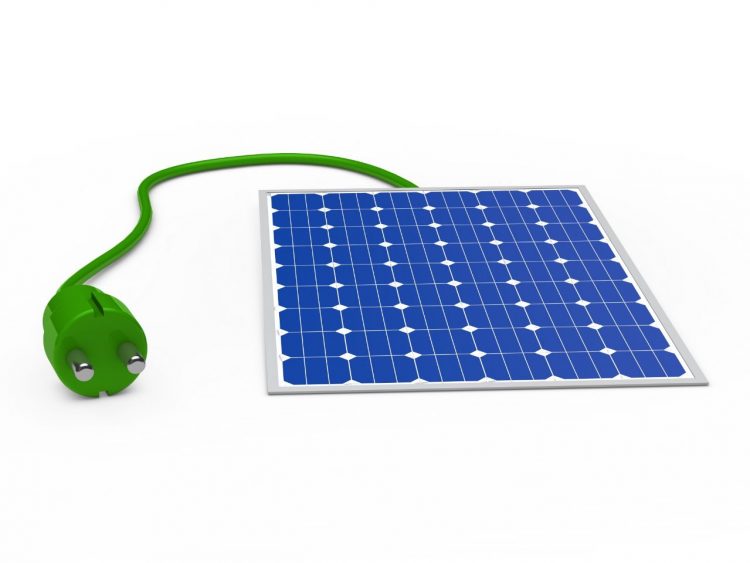You’ve gone solar and you’re reaping the benefits of clean, renewable energy. Great! But what happens when the sun goes down or when a power outage hits? That’s where solar batteries and storage comes in. By installing a solar battery, you can store excess energy from your solar panels to use during those times when your panels are not generating enough power.
Learn further below about everything you need to know about solar batteries, from how they work to the different types on the market. And find out if solar batteries are right for your home.
Solar Energy Basics
Solar energy is generated by converting sunlight into electricity using photovoltaic (PV) cells. These cells are usually made from silicon and they work by absorbing sunlight and then creating an electric current. The current is then sent to an inverter which converts it into alternating current (AC) that can be used to power your home or business. Any excess electricity that your PV cells generate is sent back to the utility grid.
How Solar Batteries Work
Now that we’ve covered the basics of how solar energy works, let’s take a look at how solar batteries fit into the equation. As mentioned earlier, solar batteries allow you to store excess electricity so that you can use it during times when your panels are not generating enough power. For example, if your panels are only generating enough power to offset 50% of your usage, you can use the stored energy from your battery to cover the other 50%.
This is especially helpful during peak usage hours or a power outage. Solar batteries can also help improve your home’s energy efficiency by reducing your dependence on the utility grid. By storing excess electricity, you can avoid paying those pesky demand charges that some utilities charge during times of high usage. And because solar batteries can help reduce your overall electricity usage, they can also help lower your carbon footprint!
Types of Solar Batteries
Not all solar batteries are created equal. There are three main types of batteries on the market: lead-acid, nickel-cadmium (NiCd), and lithium-ion.
Lead-acid batteries are the oldest type of battery and they’re typically used for backup power systems like generators. NiCd batteries are less common these days but they offer longer lifespans than lead-acid batteries. Lithium-ion batteries are becoming increasingly popular thanks to their high efficiency and long lifespan. However, they are also the most expensive type of battery on the market.
When choosing a solar battery, it’s important to consider factors like cost, capacity, depth of discharge (DoD), and round-trip efficiency. Capacity refers to how much electricity a battery can store and is typically measured in kilowatt-hours (kWh). DoD refers to how much of a charge a battery can suffer before it needs to be replaced or recharged and is expressed as a percentage. Round-trip efficiency measures how much electricity is lost when storing and retrieving electricity from a battery and is typically between 70-85%.
The Downside
Even with all the good that solar batteries can do, there are also some disadvantages to consider before installing one in your home. One disadvantage is that solar batteries tend to be expensive upfront costs. Additionally, solar batteries require maintenance and upkeep over time, which can add to the cost of ownership. Finally, solar batteries take up space and may not be suitable for homes with limited roof or yard space.
But There’s a Solution
Most people are familiar with the standard solar panel arrays that are becoming increasingly common on rooftops across the country. What they may not realize, however, is that these arrays require a significant amount of space for the batteries that store the solar energy. For many homeowners, this can be a problem, as there is often limited space available on their property. One solution to this problem is to get a residential demolition.
By tearing down an existing structure on your property, you will open up the space needed to install a solar battery system. In addition, you may also be able to take advantage of state and federal tax incentives for getting a residential demolition. Provided this isn’t the first thing that might pop into your mind when looking for a solution to having a solar battery installed on your property. But think about it, if you have the means to afford a solar power set-up and the initial upfront cost of purchasing a battery then having a budget for making space is likely within reach. Ultimately though, choosing to go solar is still up to you and it requires a commitment to turning to green and sustainable energy.
Conclusion
Solar battery storage has many advantages that make it a good investment for most homeowners. Its ability to provide backup power during a power outage is particularly valuable for people who live in hurricane-prone areas. Additionally, its potential to save money on your electricity bill makes it a wise investment for many homeowners. Finally, its environmental friendliness makes it a good choice for those who want to reduce their reliance on fossil fuels. However, there are also some disadvantages to consider before installing solar battery storage in your home, such as the high upfront cost and the required maintenance over time. Overall, though, solar battery storage is a good investment for most homeowners as long as they commit to it.









